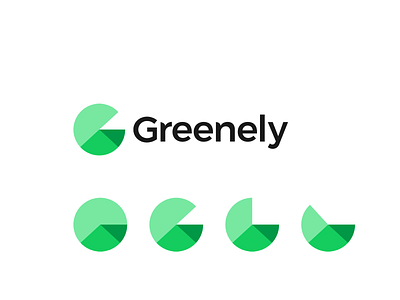Swedish startup Greenely has secured €8 million in Series A funding to expand its energy management platform into neighboring Nordic countries, capitalizing on the growing opportunities in the energy transition.
The energy technology venture currently services approximately 200,000 households in its native market. It gives energy optimization services and freemium energy consumption analytics, which enable paying consumers to reduce their electricity consumption.
Examples include the intelligent charging of electric vehicles during periods of low energy prices or the access to government payments due to Greenely’s automated (aggregated) optimization of customers’ energy demands, which reduces energy demand on the grid.
These energy optimization services are exclusively accessible to consumers who pay Greenely for their energy supply.
Nevertheless, it intends to decouple that requirement as new European legislation is implemented in its domestic market, which is expected to be completed by the end of the year.
The startup also allows its energy customers to install a home battery (currently, the Pixii Home is resold) to store energy for future use.
This allows households to adjust their energy consumption in response to fluctuations in wholesale electricity prices and to determine when they are and are not using the grid to minimize their energy expenses.
The Greenely platform is also intended to facilitate integrating and managing energy demand and consumption for households that have installed solar panels and heat pumps.
For example, customers who have installed solar panels and batteries in their homes can sell excess energy when the price of electricity is high and reserve it when it is low for future sale or use.
Greenely’s “residential virtual power plant” (VPP) technology is accessible to paying customers, who are also granted access to a dynamic, hourly-priced electricity tariff.
This system enables customers to contribute to grid stability and, in turn, unleash revenue generation opportunities through government payouts by balancing the electricity network.
In an interview with TechCrunch, CEO and co-founder Tanmoy Bari stated, “We ensure that [our customers] save a significant amount of money.”
“In essence, by utilizing our platform and transitioning.” And the virtual power plant technology genuinely allows consumers to generate revenue that they have never seen before.
“We aggregate this on a massive scale to enter these frequency markets and stabilize the power grid throughout the nation.”
This results in the government genuinely compensating us, and we,, in turn,, distribute the funds to the consumers. Therefore, consumers can save and generate substantial money through our platform.
According to Bari, the average annual savings in energy consumption are €250 per consumer. Nevertheless, he emphasizes that this is an average and that a household charging an electric vehicle (EV) could experience annual savings of up to €500 due to the platform’s capacity to optimize charging.
Additionally, battery storage consumers can generate revenue by supporting Greenely’s capacity to help the government balance grid demand.
Bari suggests that users would have been able to generate over €3,000 in balancing payments last year if its VPP tech had been completely operational throughout 2023.
However, customers must consider the battery’s cost; however, he asserts that the investment in a residential battery would be recouped within “two to three years.”
Developing an energy foundation
Greenely did not always engage in this more intelligent consumption competition. It was established approximately a decade ago to provide energy utilities with a tool to improve their consumer experience.
However, after a few years, the team recognized an opportunity to create “the consumer experience for the energy consumer of tomorrow,” as Bari describes it. This necessitated Greenely to become an energy supplier.
The startup’s approach is similar to Octopus Energy in the United Kingdom and Tibber, a digital energy startup operating in its native country. However, Greenely’s objective is to transcend the confines of direct competition as an energy supplier.
It aspires to become an “energy platform” layer that consumers of competing suppliers can utilize to generate savings and revenue in addition to their service provision.
Decoupling the service in this manner may allow Greenely to establish itself as a more autonomous entity dedicated to reducing customers’ energy bills and assisting them in generating revenue. As an electricity supplier, it may create greater profits when customers’ bills are higher.
It also establishes a path for the startup to expand its scope, significantly impact energy management and demand, and potentially assist in accelerating Europe’s decarbonization by incentivizing householders to participate.
Bari underscores, “We do not regard ourselves as an energy supplier.” “We regard ourselves as an energy platform.”
“Our objective is to provide consumers with the most exceptional experience possible.” Additionally, we have made significant progress.
We believe that our new offering is the most advanced in the market and are expanding it to other markets.
“We have not observed anyone else engaging in this activity,” he continues regarding the VPP action. “We have been preparing our service for this for an extended period.” We believe that the energy supply is a highly effective revenue modt present; however, we think we have numerous other opportunities to pursue.
We aspire to encompass the maximum number of consumers and establish Europe’s largest virtual power plant. This necessitates a significant number of consumers on a platform. Therefore, we are not interested in restricting ourselves to consumers who possess our energy supply.
According to Bari, the new funding will enable Greenely to expand its platform to households in Finland and Norway as a preliminary step toward international expansion. This will allow the company to capitalize on a unified market for frequency balancing services in these countries.
It also monitors other European markets with well-received smart meters (he identifies France and the United Kingdom as intriguing potential future markets).
Bari maintains that the startup can accommodate regulatory variations in managing energy markets throughout Europe; however, he maintains that smart meter penetration is a fundamental requirement for its methodology to function.
Consequently, a market such as Germany, where intelligent meter adoption is low, is not currently on the startup’s roadmap.
He also informs us that the objective is to establish Europe’s most prominent residential virtual power plant and consumer offer. “This is a logical progression, as electricity is necessary for all individuals.”
Therefore, the market is quite vast when one has access to many consumers, as with any market. We continue to attract significant consumers in Sweden, as there are over 2 million detached homes and over 4 million homes.
“The markets in the Nordics are extremely substantial; however, the objective is to become the largest player in Europe.”
Korys, a Belgian investment corporation, served as the lead investor in Greenely’s Series A. Luminar Ventures and other current shareholders were also involved. It has raised approximately €15 million to date, which includes this most recent round and a €2.5 million pilot round in 2019.
In a joint statement, Korys’ investment director, Brieuc de Hults, and investment manager, Quentin Dupont, wrote about the Series A funding:
“Greenery is a remarkable company committed to revolutionizing how households consume electricity and positively contributing to a net-zero future. They exemplify the type of impactful company we want to support.”
We are delighted to collaborate with Tanmoy and the team in this next thrilling chapter for Greenely and assist with their geographic and product expansion.
*Not to be confused with the French carbon-emission monitoring startup, Greenly.
The upper bound figure for average savings for EV owners was corrected in this report after an incorrect figure was provided during our interview.



